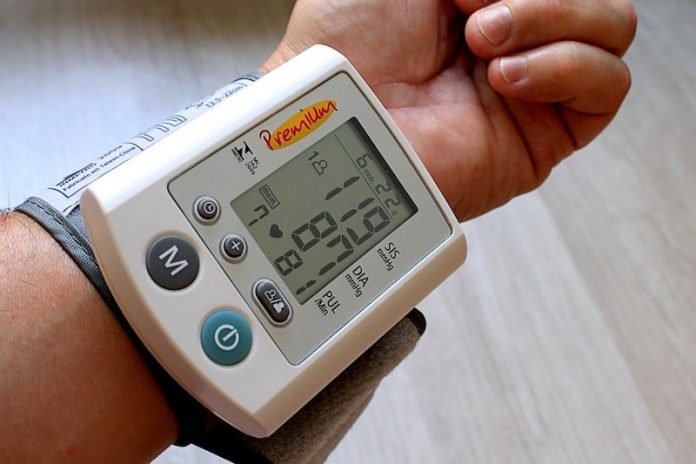
In a new study, researchers found people who experience high blood pressure while sleeping are more likely to experience future heart disease especially heart failure, even when their daytime blood pressure is within normal ranges.
This finding provides important information about the heart disease risk linked to high nighttime blood pressure and different nighttime blood pressure phenotypes than have been reported previously.
The research was conducted by a team at Jichi Medical University in Tochigi, Japan.
Health care professionals typically use in-office and daytime blood pressure measurements to determine a patient’s hypertension medication needs and dosages.
However, many patients may have undetected nocturnal hypertension — high blood pressure while sleeping.
In the study, the team enrolled 6,359 patients from across Japan between 2009 and 2017 and measured daytime and nighttime levels using an at-home, wearable, ambulatory monitor.
Almost half of the study participants were male, and more than half were over the age of 65 years.
The patients all had at least one heart disease risk factor, and three-quarters of them were taking blood pressure medications, and none had symptomatic cardiovascular disease when the study began.
The total follow-up ranged from two to seven years. Study participants reported 119 strokes, 99 diagnoses of coronary artery disease, and 88 diagnoses of heart failure.
The team found increased blood pressure levels during sleep—a systolic blood pressure measuring 20 mm Hg above a person’s daytime systolic reading—was strongly linked to the risk of atherosclerotic cardiovascular disease and heart failure.
The participants who had an abnormal circadian pattern, which is when sleep blood pressure exceeds daytime readings, were at particular risk of developing heart failure and had a greater risk of experiencing any heart disease events.
Excessive reduction of blood pressure during sleep may also be harmful.
Patients with well-controlled hypertension showed a significantly increased risk of stroke when nighttime systolic pressure took extreme dips.
These findings suggest that nighttime systolic blood pressure is an important risk factor for heart events.
The study highlights the importance of including nighttime blood pressure monitoring in patient management strategies and will hopefully encourage physicians to ensure that antihypertensive therapy is effectively lowering blood pressure throughout the 24-hour dosing period.
One author of the study is Kazuomi Kario, M.D., Ph.D.
The study is published in Circulation.
Copyright © 2020 Knowridge Science Report. All rights reserved.



